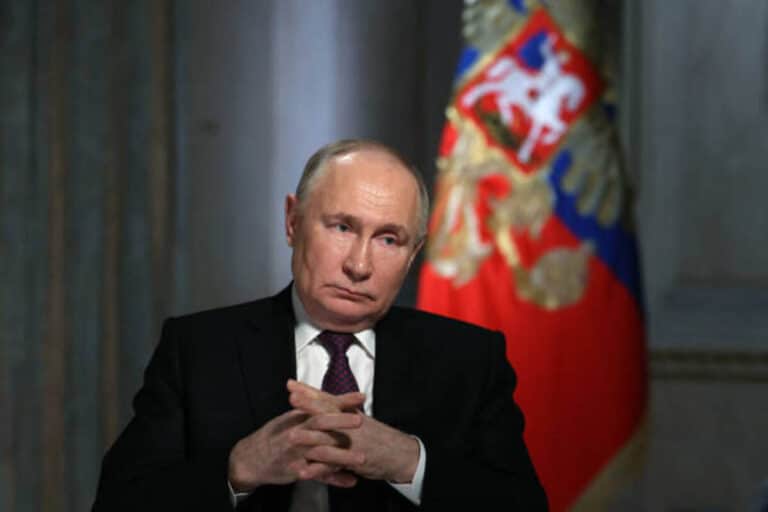

Customers talk with a salesman at a Toyota dealership in Richmond, California, on Aug. 2, 2012. Toyota aims to reclaim global sales leadership. Photographer: David Paul Morris/Bloomberg via Getty Images
EPICSTORIAN – A 25% auto tariff on imported cars and auto parts is set to take effect on April 3 at 12:01 am (0401 GMT), as announced by President Donald Trump.
The policy targets vehicles made outside the United States, sparking outrage from major auto-exporting nations.
“What we’re going to be doing is a 25 percent tariff on all cars that are not made in the United States,” Trump stated at the White House. “If they’re made in the United States, it is absolutely no tariff.”
Global Leaders Condemn Auto Tariff Policy
Germany has urged the European Union to take immediate action in response to the auto tariff, calling for strong countermeasures. Japan also condemned the policy, calling it “extremely regrettable,” and warned of serious economic consequences.
Concerns over disrupted supply chains and rising consumer costs are growing, with diplomatic tensions escalating over US trade policies.
Stock Markets and Automakers Face Losses
Stock markets in Asia and Europe declined following the announcement. Shares of leading automakers, including Toyota, Hyundai, and Mercedes-Benz, fell as investors reacted to potential economic risks.
• Missouri Tornado kills 12 as extreme weather sweeps through the South
The tariff is intended to boost US manufacturing, but analysts caution that it could raise vehicle prices and harm global trade.
Car Parts Also Affected by Tariff Expansion
Beyond complete vehicles, auto parts will also face import duties. The broader scope indicates a push to relocate production to the US. However, industry experts warn that retaliatory measures from affected countries could deepen the economic standoff.
Trade officials worldwide are considering their next steps as the auto tariff policy reshapes global trade dynamics.










